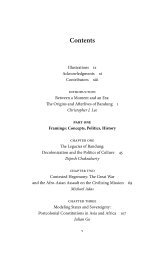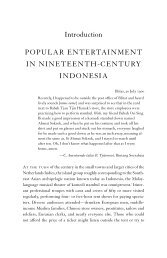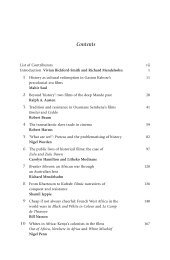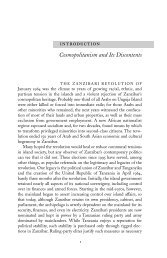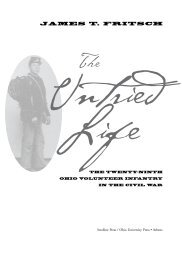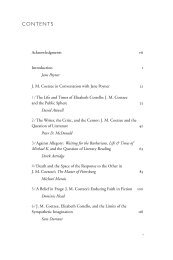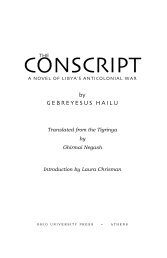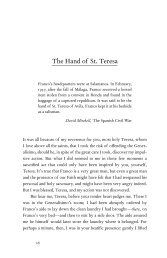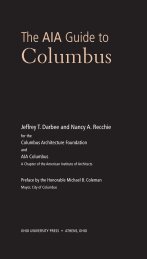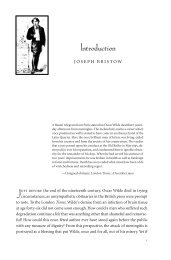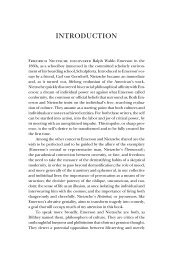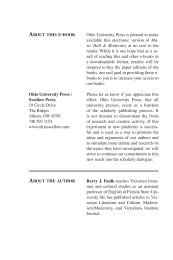Introduction
Introduction
Introduction
You also want an ePaper? Increase the reach of your titles
YUMPU automatically turns print PDFs into web optimized ePapers that Google loves.
Communists, Anarchists, ordinary politicians, Vegetarians, Anti-vivisectionists<br />
and Anti-vaccinationists—in fact, every kind of ‘anti’ had a welcome and a<br />
hearing, and had to stand a lively criticism in the discussion which followed.”<br />
Members of the Croydon Brotherhood Church embraced a kind of religious<br />
anarchism, rejecting the acquisition of wealth and trying to lead lives modeled<br />
on those of Christ and his disciples. 13<br />
The Whiteway colonists looked for their inspiration to Leo Tolstoy, the<br />
Russian novelist whose embrace of nature, admiration for the peasantry, and<br />
revolutionary reinterpretation of lived Christianity brought him to the attention<br />
of English idealists. Tolstoy argued that the Christian message had<br />
been distorted by the churches, by the state, and especially by capitalism.<br />
Rejecting these three negative influences, he advocated instead “the establishment<br />
of the kingdom of God on earth; that is, the establishment of the<br />
order of life in which the discord, deception and violence that now rule will<br />
be replaced by free accord, by truth, and by the brotherly love of one for<br />
another.” On his own estate at Yasnaya Polyana, Tolstoy dressed as a peasant<br />
and labored in his fields beside his workers. He did not, however, give up the<br />
title to his property. 14<br />
Members of the Croydon Brotherhood founded Purleigh Colony in<br />
Essex in 1896, but it fell apart within two years when colonists disagreed over<br />
whether to accept two tradesmen—a carpenter and an engineer—who had<br />
applied to join the commune. For some Purleighites, this dispute smacked<br />
of class bias, of a distinction made between those who had actual wealth to<br />
reject and those who did not. In the spring of 1898, William Sinclair, Arnold<br />
Eiloart, and Sudbury Protheroe joined Nellie Shaw in searching for a site<br />
for a new colony. Their plan in turn attracted Clara Lee, Daniel Thatcher,<br />
and Joseph Burtt; the two men were members of the West of England<br />
Land Society and of the Society of Friends. Burtt was still working for the<br />
Gloustershire Bank in Cheltenham. That August, the group, less Protheroe,<br />
cycled or traveled by train around Gloucestershire. 15<br />
After an extended search, Eiloart and Burtt purchased forty-two acres<br />
known as Whiteway and conveniently located near the railway lines connecting<br />
Stroud, Gloucester, and Cirencester. They had found a garden surrounded<br />
by small cities. Two women and six men, including Joseph Burtt<br />
and his brother Gopsill, moved into a rented house in nearby Sheepscombe.<br />
In October, leaving Daniel Thatcher and Clara Lee to set up a women’s<br />
weaving cooperative in Sheepscombe, the rest of the colonists moved to the<br />
Whiteway farm.<br />
Prologue



